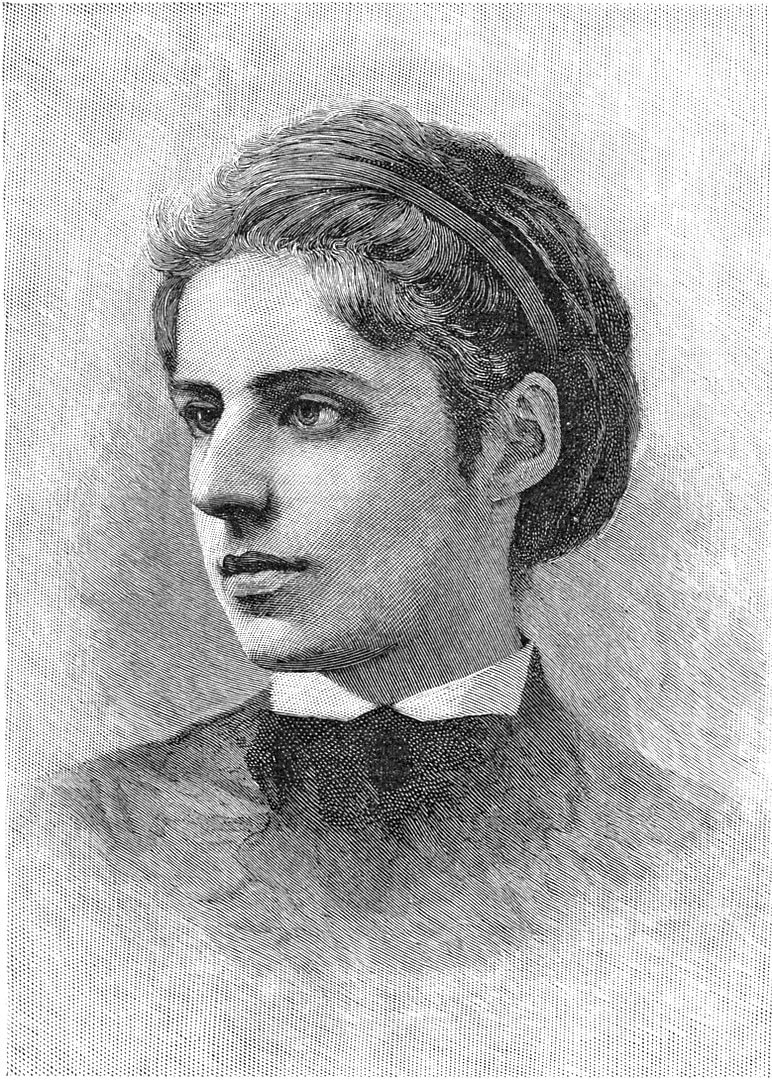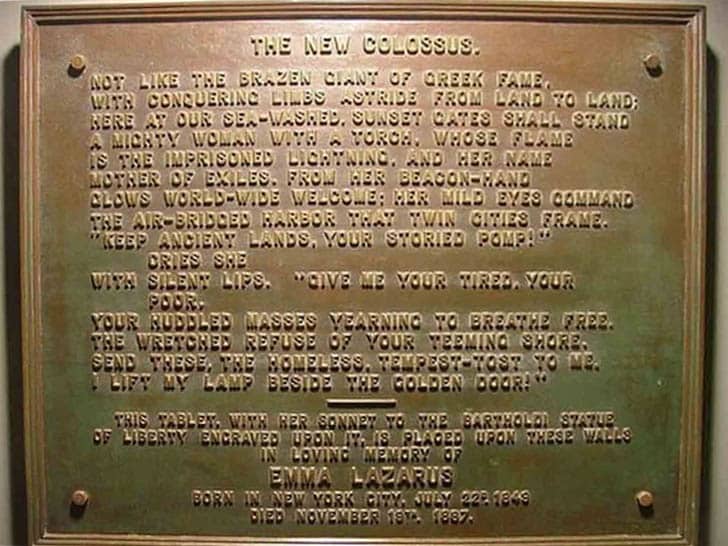One of the most famous statues in the world, the Statue of Liberty in New York, has a poem affixed on a plaque to the pedestal at its base.
It was written by Emma Lazarus (1849 – 1887), a fifth-generation American Jewish woman, who was caught at something of a turning point in American and Jewish history. She was involved in assisting refugees to America who were escaping European pogroms and was a popular poet in the USA and abroad. Through her work Lazarus contributed to the shaping of America’s self-image, and she provided important lessons on the treatment of immigrants and their need for dignity.
Her 1883 sonnet was inspired by the Statue of Liberty and was donated to be sold in an auction to raise funds for its pedestal. It has in turn inspired other work – the last lines were set to music by Irving Berlin in his 1949 musical Miss Liberty, the words have been used in a song by Lee Holby, and a school has been named for the writer.
The New Colossus by Emma Lazarus
Not like the brazen giant of Greek fame,
With conquering limbs astride from land to land;
Here at our sea-washed, sunset gates shall stand
A mighty woman with a torch, whose flame
Is the imprisoned lightning, and her name
Mother of Exiles. From her beacon-hand
Glows world-wide welcome; her mild eyes command
The air-bridged harbor that twin cities frame.
“Keep, ancient lands, your storied pomp!” cries she
With silent lips. “Give me your tired, your poor,
Your huddled masses yearning to breathe free,
The wretched refuse of your teeming shore.
Send these, the homeless, tempest-tost to me,
I lift my lamp beside the golden door!”
The poem explores the hopes and dreams of migrants. The statue and her torch embody freedom. The sonnet opens with a statement of what the statue is NOT, not a massive sculpture built to commemorate a battle or victor. Rather she is a “mighty woman” and ‘Mother of Exiles”, a woman who will care for others regardless of where they come from. She offers a welcome, with her warm light and mild eyes. Then, in the last part of the poem, the statue speaks, encouraging those who are rich or powerful to remain in their homelands, while the poor and “huddled masses” should come to America. There they will find safekeeping.
Here are some YouTube recordings of the poem you may like to listen to:
Did you enjoy this poem? Let me know by leaving a comment.



Christine Dearness
OH WOW, Suzannah!
What humanity and generosity are in these words:
“Give me your tired, your poor,
Your huddled masses yearning to breathe free,
The wretched refuse of your teeming shore.
Send these, the homeless, tempest-tost to me”
If only we had an epic poem & national sentiment similar to this engraved at our major Australian entry ports..
Susannah Fullerton
They are wonderful words. Sadly, I don’t know how well they are now observed anywhere in the world, as refugees and displaced people becomes more and more of an issue.
Fiona Martin
I read the poem and listened to the recordings and was very moved.
Thank you for posting it.
Susannah Fullerton
I am glad you enjoyed the poem.